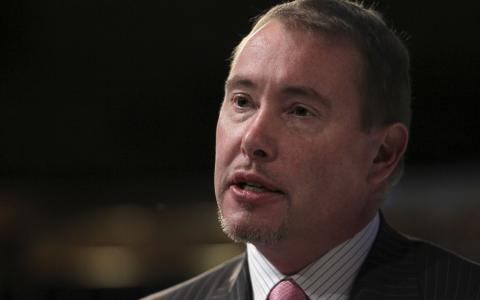
(Yahoo) While tax proposals such as capital gains and wealth taxes "incrementally" help with wealth inequality, they don't "come close to paying for the spending," according to billionaire bond king Jeffrey Gundlach.
Gundlach, the founder and CEO of $135 billion DoubleLine Capital, emphasized that federal government spending is more than half paid for by deficit spending.
"Now one thing about these stimulus checks is on the surface of a people might think, 'Well, if we give money to the poor and we take it from the rich we're going to help get rid of wealth inequality.' But there isn't any historical reason to believe that that would be the outcome. Once we go into an unmoored type of monetary and fiscal policy, which is territory that we've entered, we can go back in history and look it's what happens in prior examples, and ... it's pretty depressing to do that because the outcomes are often civil wars, revolutions," Gundlach said.
The investor cited the Women's March on Versailles in October 1789 during the French Revolution that began in the market over the high price and shortage of bread that culminated in women besieging the palace.
"[They] did it in the pouring rain, and many of them, I suspect, didn't even have any shoes. So why did it come to that? Well, the money printing and the giving away, ended up making the middle class poor, and the prior poor class starving to death. And at the other end, the people who were controlling the levers of the money printing became more wealthy," Gundlach said.
The bond investor noted that tax increases would not pay for the spending, and "if we go to another level of free money, I think the wealth inequality will get worse."
According to Gundlach, the stimulus has been beneficial to U.S. consumption, but it's not developing the country's productive base.
"So we have more consumption, but the consumption is stuff coming in from China. So Chinese GDP is booming because we're buying all their stuff. And so, that's exacerbating that problem as well," he said.
He pointed to Amazon's (AMZN) surge during the pandemic and its founder Jeff Bezos' soaring net-worth, which he tied back to government stimulus.
"And so that's, that's kind of how the mechanism works. So the stimulus hasn't helped our productive base. It's helped China and it's helped certain very rich people in Silicon Valley and the like."



